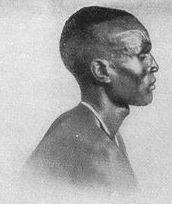Top Qs
Timeline
Chat
Perspective
Dinka Malual
Nilotic ethnic group native to South Sudan From Wikipedia, the free encyclopedia
Remove ads
The Dinka Malual, also known as the Dinka Aweil, or Malual Tueng (Dinka: malual tueŋ), or just Malualjeernyang (Dinka: Malualgiɛrnyaŋ) are the largest subgroup of the Dinka people. They reside primarily in the Northern Bahr el Ghazal region of South Sudan, particularly around Aweil. They are part of the larger Nilotic ethnic group and are known for their pastoralist lifestyle, rich cultural heritage, and historical resilience.[1]
This article needs additional citations for verification. (January 2019) |
Remove ads
History
The Dinka Malual have traditionally lived in the floodplains of Bahr el Ghazal, characterized by seasonal rivers and pastures suitable for cattle grazing.[2] They faced many challenges, including displacement during the Second Sudanese Civil War and conflicts with neighboring groups such as the Baqqara Arabs.[3]
The Dinka Malual have faced significant challenges, including the Malual Dinka-Baqqara border conflict, which impacted national integration and local stability.[4] Climate change, cattle raids, and displacement due to civil war affected their traditional way of life.[5]
Remove ads
Culture
Dinka Malual society is organized into clans and lineages. Elders play a significant role in governance and conflict resolution.[6]
They speak a dialect of the Dinka language, part of the Nilotic language family.[2]
Their traditional beliefs include the worship of a high god, Nhialic, alongside more recent Christianity.[7]
Economy
The Dinka Malual's economy is primarily based on animal husbandry, agriculture, and fishing. Aweil Dinka cattle are notable for their smaller, finer build compared to other Dinka breeds.[8]
Peace efforts
Peace initiatives, such as the Misseriya-Dinka Malual Peace Conference, supported by the United Nations Missions in South Sudan, aimed to foster dialogue and reconciliation, addressing long-standing conflicts and promoting peaceful coexistence.[9]
References
Further reading
Wikiwand - on
Seamless Wikipedia browsing. On steroids.
Remove ads

